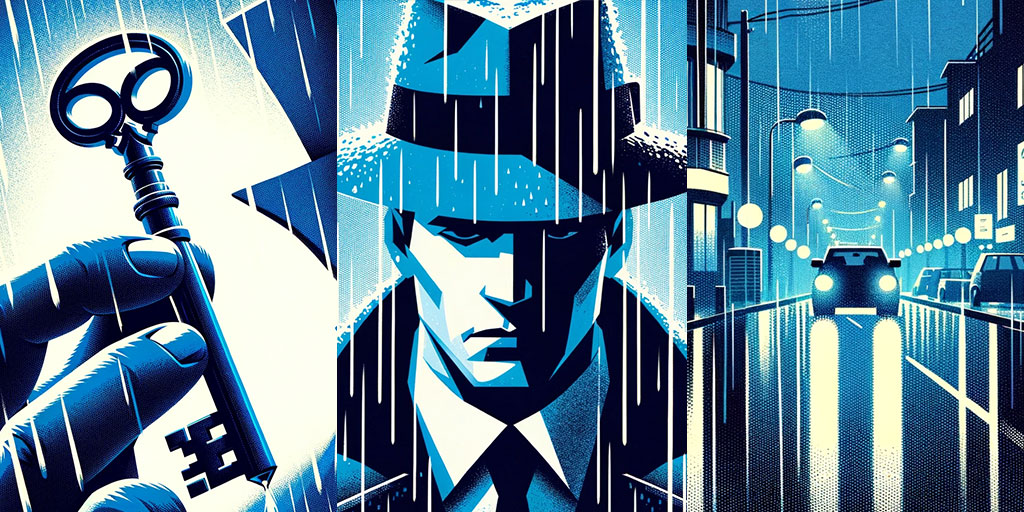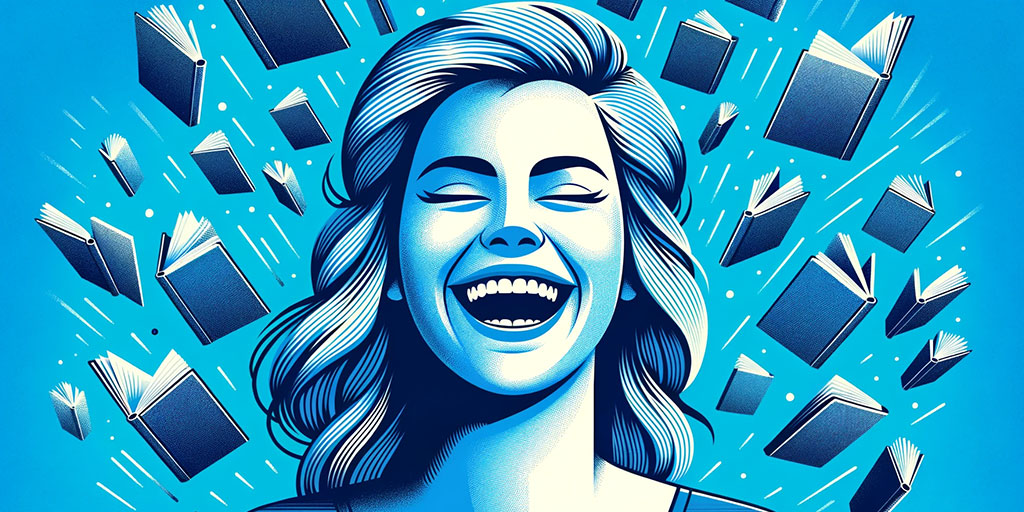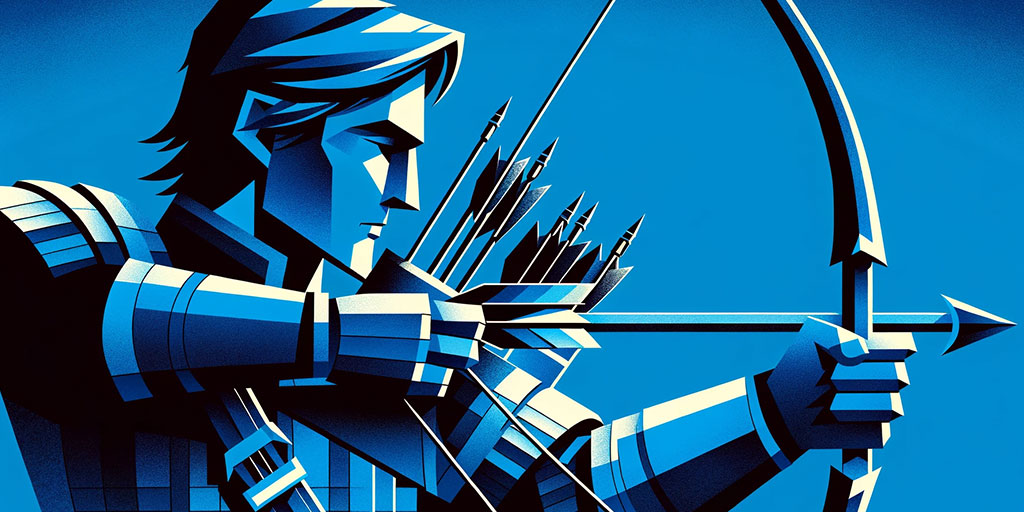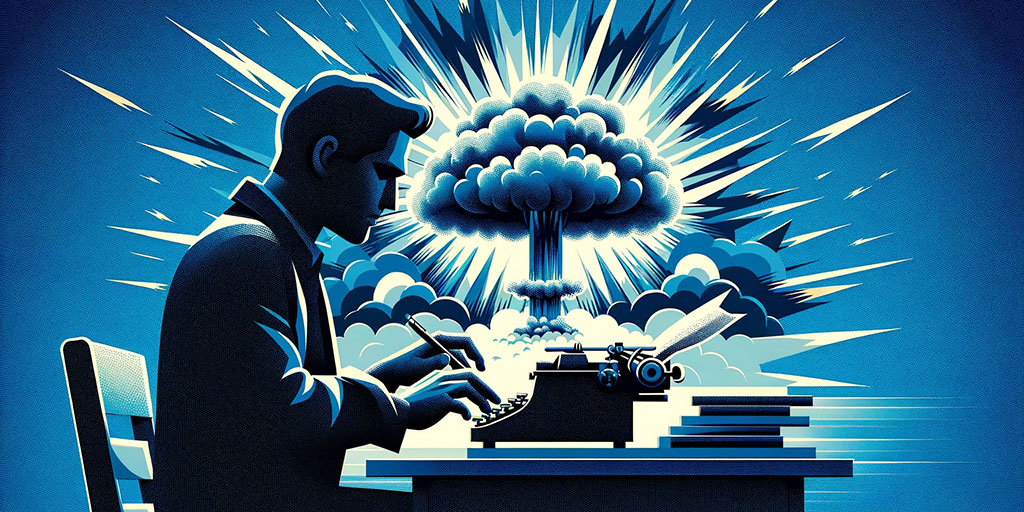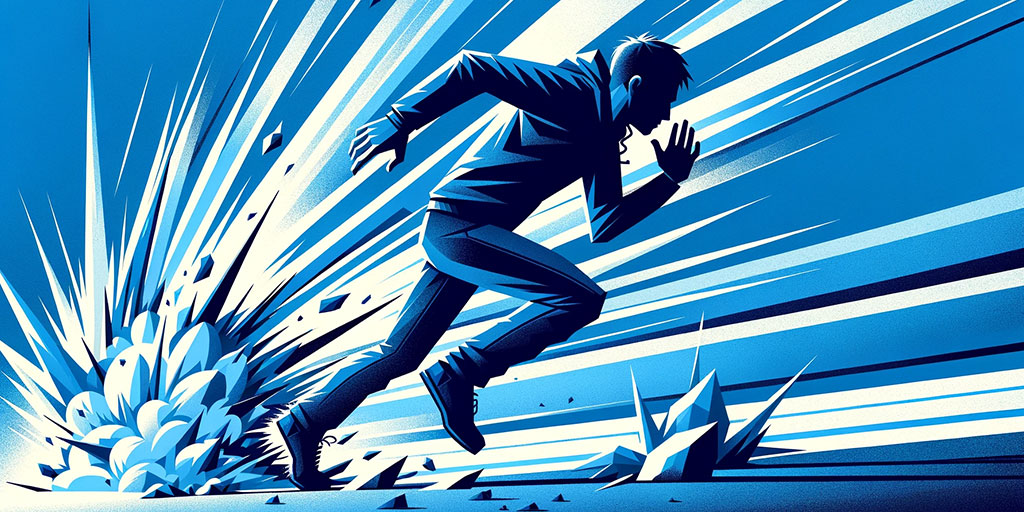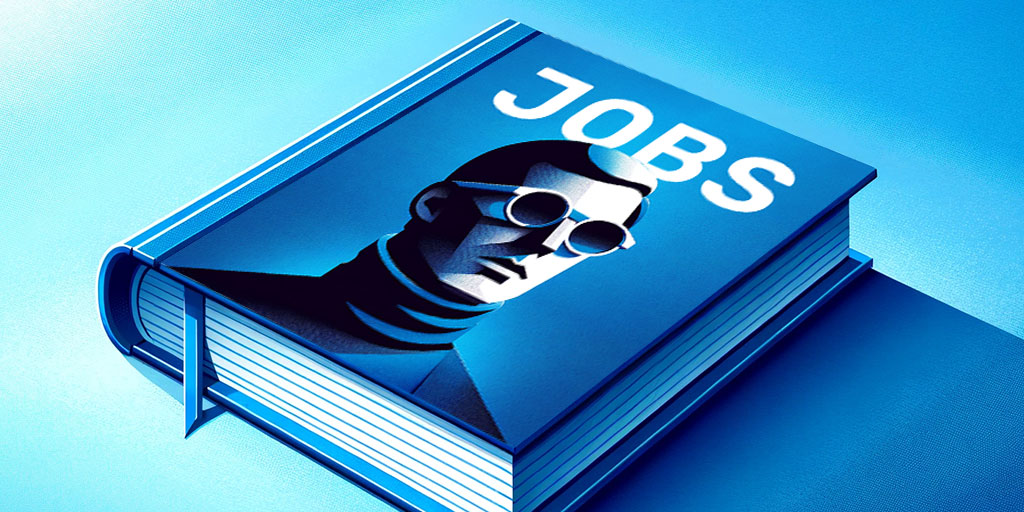Irony is an important tool in any writer’s arsenal that can lend more meaning, insight, and depth to one’s storytelling. When used effectively in a narrative, it can provide deeper complexity, a healthy dose of suspense and tension, and even humor in some cases. At its core, irony involves saying something that is the opposite of its literal meaning, but there’s a bit more to it than that—which is why many writers have trouble using irony correctly.
What Is Irony?
Irony occurs both in literature and in real life situations, but what does “irony” mean? In its most basic definition, irony is simply when a person says or does something that differs from expectation. It’s this unexpected juxtaposition that makes the ironic words or actions interesting. Generally, the result is something humorous or even thought-provoking.
Of course, if the definition of irony ended here, it wouldn’t be quite so confusing for so many! Going deeper, it’s crucial to understand that there are many different types or categories of irony.
Craft of Writing Quiz (Easy)

Types of Irony
How many types of irony are there? Well, it depends on who you ask. Some will say there are three types, while others will say there are four. Let’s take a closer look at four of the main types of irony and examples of each. Having specific examples can often help people to better understand how it works and thus how to best use it in various situations.
| Type of Irony | What Is It? |
|---|---|
| Verbal Irony | When the narrator’s words differ from how someone would normally react or feel in that situation. |
| Dramatic Irony | When the audience knows more about the situation than the characters, leading to heightened tension and suspense. |
| Situational Irony | When the events currently unfolding are the exact opposite of what was expected to happen. |
| Socratic Irony | When a person pretends to be ignorant about a situation and gets someone else to admit to things they wouldn’t have admitted to otherwise. |
Verbal Irony
Verbal irony occurs whenever a speaker or narrator, whether in real life or in literature, tells the listener or reader something different from what they truly mean or intend or something that goes against what the situation would typically dictate.
This is one of the most common types of irony found in Internet memes today, wherein the action happening in the image is the opposite of what the narrator is saying.
Verbal irony can benefit a story in several ways. It can be used to create tension or suspense for the reader, or it can be used to humorous effect. Let’s look at a few examples from both real life and literature.

Verbal Irony Examples
First, let’s look at a couple examples from real life. It’s sweltering outside and the AC goes out. You call your landlord and say, “I really love how nice and cool it is in my place!” Another example would be when a mother walks into her child’s messy room and says, “I love how clean you keep your room.” In both cases, the speaker is highlighting the fact that the reality clearly does not match their words.
Here’s an example from popular literature that many people will recognize. In Harry Potter and the Order of the Phoenix, Harry talks about something that happened back in the first book. He says, “Yeah, Quirrell was a great teacher. There was just that minor drawback of him having Lord Voldemort sticking out of the back of his head!”
Here, he’s using understatement and contrast: Quirrell wasn’t a good teacher, and Voldemort being part of Quirrell’s body was obviously more than just a minor problem. Another example comes from Julius Caesar by William Shakespeare. In the play, Marc Antony refers to Brutus in a speech as an honorable man, but the truth is that Brutus participated in the murder of Caesar.
Dramatic Irony
Dramatic irony is a literary device where the reader has a fuller understanding of individuals or events in the story than the characters themselves. Essentially, the reader knows something that the characters don’t. For example, if a story switches to a different point of view and the reader gets to see what the villain is doing or thinking, they have knowledge the protagonist doesn’t have.
Dramatic irony works well in stories because it can help to build and keep the interest of an audience. It often instills curiosity, as well as tension. The tension rises when the reader knows or has an inkling as to what’s happening, yet the character remains unaware. That’s one of the keys of dramatic irony—the reader/listener is in on the secret.

Dramatic Irony Examples
Shakespeare used dramatic irony quite often. In the play King Lear, for instance, the audience is made aware that Cordelia is the king’s most loyal daughter. However, the king himself does not know and cannot see this truth.In Macbeth, the audience knows that Macbeth is planning to murder Duncan, even though he acts as though he’s loyal and someone to be trusted. Another famous example of dramatic irony from Shakespeare is in Romeo and Juliet, as both of the title characters ultimately commit suicide because they don’t know each other’s plans.
Situational Irony
Situational irony happens when a character’s intentions are impeded and the result of their actions ends up being the exact opposite of what they originally wanted or expected. In other words, on the surface something might appear one way, but in reality, it is the opposite.
The concept of situational irony is simple enough, but it can be challenging to use correctly in stories, whether it’s a short story, novel, or movie. A good way to learn how to use it effectively is by looking at some quality examples.

Situational Irony Examples
The Wonderful Wizard of Oz by L. Frank Baum offers up a healthy dose of situational irony via the characters themselves. Dorothy originally goes on a quest to meet a wizard who can help her get home, only to learn later on that she had the power to get there on her own all along. Think about the other characters, too. They believed they needed courage, heart, and a brain—things they already had within them from the start, as proven through their actions in the story.
Another wonderful example is “The Gift of the Magi” by O. Henry. In this story, a poor couple wants to buy Christmas gifts for one another. Because they don’t have a lot of money, they independently decide to give up something valuable to them to obtain enough money to buy the other a gift. In the end, the wife sells her hair to buy her husband a chain for his pocket watch, while the husband sells his watch to buy his wife a nice set of combs for her hair.
Socratic Irony
Socratic irony gets its name from the Greek philosopher Socrates who used this type of irony as a means to tease information out of his philosophy students. He would pose questions to his students that would make them question their own logic, knowledge, and beliefs, and this method taught them to think differently. This type of teaching method is still used by many teachers and parents today, and Socratic irony also remains common in literature.
Socratic irony is often considered a subtype of verbal irony rather than a distinctly separate type of irony. This is a manipulative form of irony that happens when someone feigns ignorance to get another party to admit something they wouldn’t say otherwise. In other words, it involves someone “playing dumb” to get information.
In stories, this is often used in interrogation and courtroom scenes, and it can work well for both drama and comedy. The simplest way to use it in a story is through dialogue.

Socratic Irony Examples
One of the most famous examples of Socratic irony, and a smart way of using it, is in Huckleberry Finn by Mark Twain. In this classic novel, Twain writes many characters as being backward and ignorant when it comes to how they view the world, and this is especially true with how those characters talk about and think about race. Twain uses this type of irony to challenge the readers to see those characters as fools and to see beyond their own bigotry, which was prevalent at the time.
Subtypes of Irony
Now that we’ve discussed the four main types of irony, let’s take a look at the subtypes that fall under each of those umbrellas.
- Cosmic Irony – A type of situational irony, the term “cosmic irony” is right on the nose. It refers to when a higher power—whether it is fate, the universe, or God—intervenes to create an ironic situation.
- Poetic Irony – Poetic irony and karma go hand in hand in this type of situational irony. An example in a story might be if a killer gets away with his crime but is then haunted by the ghosts of his victims until he finally kills himself.
- Historical Irony – Historical irony is when hindsight can provide an ironic perspective on something that happened in the past. It can occur in both real life and literature.
- Tragic Irony – A type of dramatic irony wherein the ironic situation causes a tragedy to occur.
- Understatement – A type of verbal irony that happens when people say something that downplays what they really mean. Instead of being the total opposite of someone’s true intention, an understatement is saying less than what you mean. For example, imagine it’s flooding and someone says, “Maybe I should wear my boots.” It is often used for comedic effect.
- Overstatement – The opposite of understatement, an overstatement involves saying more than what you mean, though it’s not meant to be taken literally. Another term for this would be “hyperbole.” An example might be “I am so hungry, I could eat a horse” or “I’ll explode if I don’t get to that concert.”
How to Identify Irony
Let’s start by learning how to recognize and analyze situational and verbal irony first. First, consider what the character is saying. Do their words match or align with the mood, surroundings, or situation? If they align and there is no incongruity, then there is no situational or verbal irony.
However, if the statement does conflict with the setting, whether it is intentional or not, that would be classified as irony. If the character is using a sarcastic tone, it would be considered verbal irony; if they are using a serious tone, it would be situational irony.
Now, let’s learn how to identify structural irony and dramatic irony. The difference here tends to be how and where it is used. First, ask yourself if the text’s structure opposes what is happening in the text. You may need to read the text a couple of times to figure this out. If there is an incongruity between the action and structure, this indicates irony. If it’s in a dramatic text, it’s dramatic irony; if it is in a novel, poem, or narrative text, it is structural irony.
Why Irony Matters
As a writer, you must first understand how irony works if you hope to use it properly in your writing. When you use this literary device correctly, it can help to make your stories deeper and richer by adding tension, humor, and intelligence to your writing. It is an essential part of storytelling that can help your readers think about your stories differently.
Frequently Asked Questions
Below are seven of the most commonly asked questions beyond the basic definition of irony.
What makes something ironic?
At its core, irony is about the disparity between expectations and realities/outcomes. In irony, the outcome is generally the opposite of what was expected, wanted, or hoped for.
What is a synonym for irony?
Some of the most common words that could be used as a synonym for irony include “incongruity” and “dichotomy.” However, once you look at the definition of irony, you will realize that it’s not so simple to come up with a single synonym for this complex literary device.
What is the most common type of irony?
The most common type of irony tends to be verbal irony, especially in the short, quippy, meme-filled world of today. However, dramatic irony and situational irony are both common as well.
Is irony positive or negative?
People tend to think of irony as being negative, which makes sense; when words and actions result in the opposite of what someone expects or wants, it’s natural for this to be viewed as something negative.
What is the opposite of irony?
Irony is about contrast and how things aren’t what they seem. The opposite would be literalism and sincerity—essentially, saying or writing exactly what you mean.
How do you use irony correctly?
It isn’t easy without a bit of practice! Irony must show the contrast or juxtaposition between how things appear and how they are in reality.
What is the difference between irony and sarcasm?
A lot of people feel that verbal irony and sarcasm are the same thing. However, it’s important to keep in mind that sarcasm is only one of the subtypes of verbal irony.
At this point, you should now have a stronger understanding of irony and humor, thanks to the definitions and examples we’ve covered. Still, this doesn’t mean that you will be a master at using it right away!
Like any new skill, it will take some time, practice, and nuance to evoke the humor and thought you want to elicit through your writing, and even then it can be difficult. After all, even people who feel they know and understand irony still can’t always agree on what makes something ironic.
Craft of Writing Quiz (Hard)


